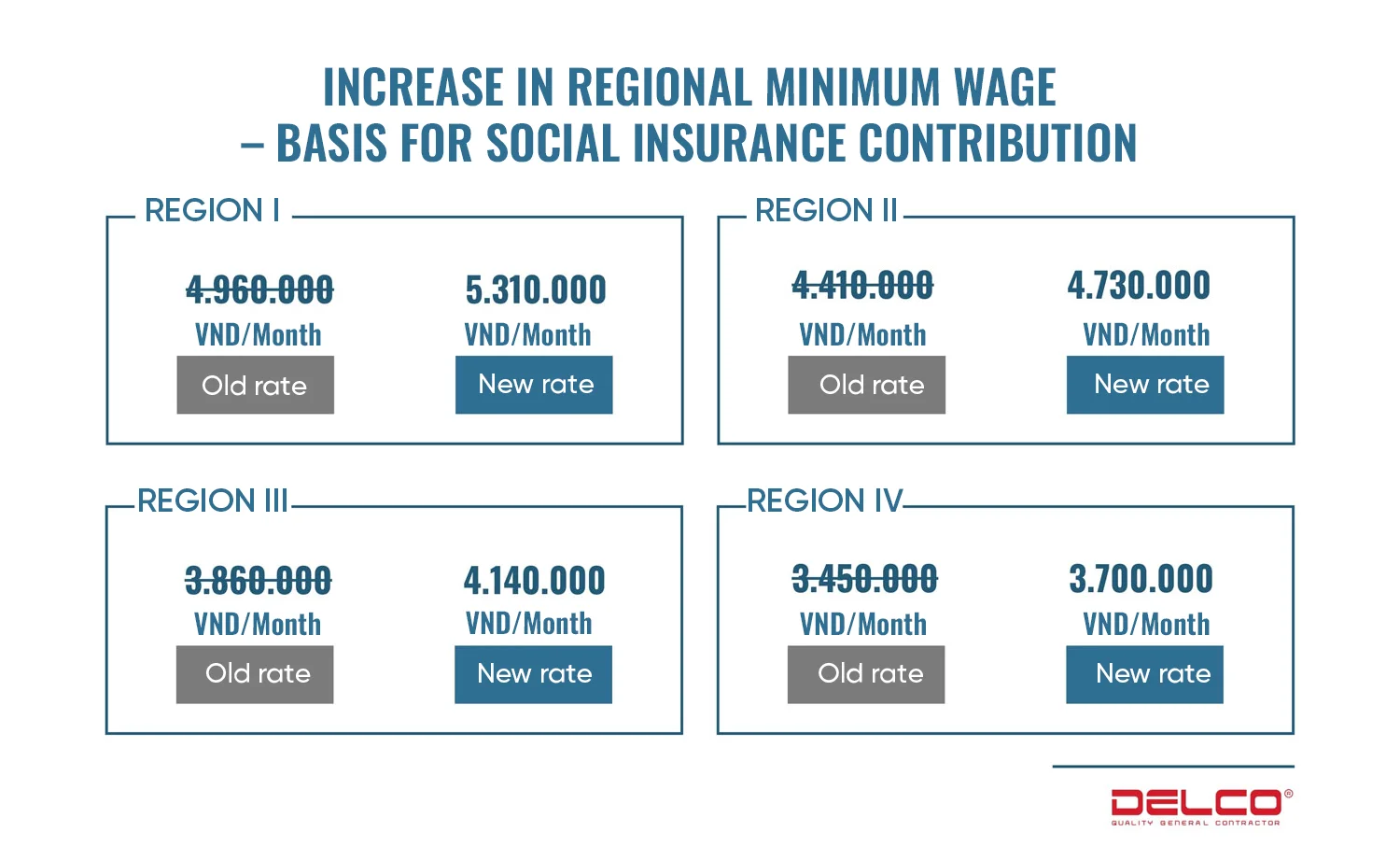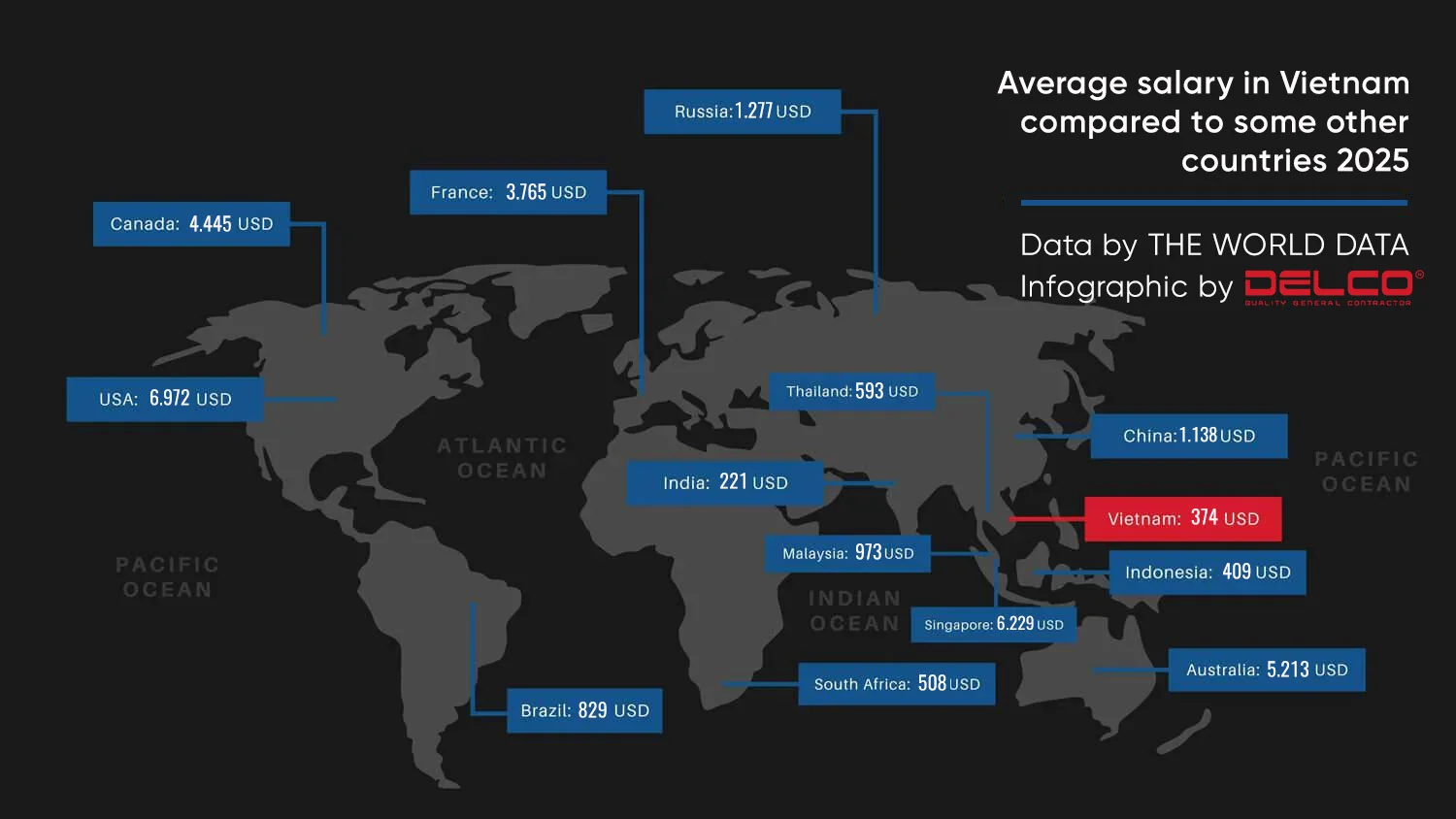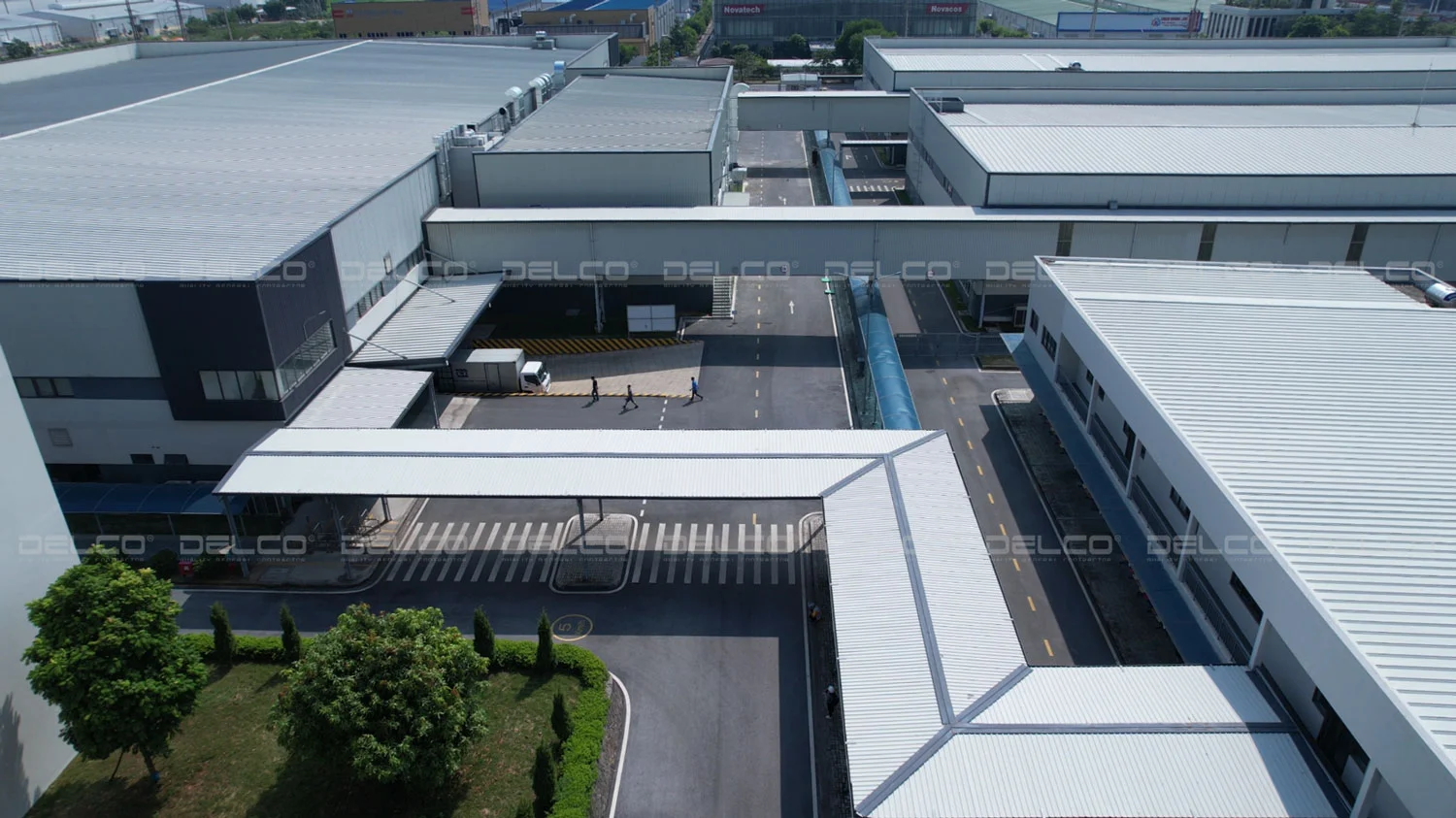Vietnam’s average monthly wage in 2025 is USD 374. Compared with other countries in the region, Vietnam’s minimum wage remains among the most competitive labor-cost levels in Southeast Asia and across Asia overall.
Labor wages in Vietnam and employee benefits under the Labor Code
According to the General Statistics Office, Vietnam’s labor force aged 15 and above in Q3 2025 is estimated at 53.3 million people, an increase of 556.3 thousand compared to the same period last year. With a large workforce, a young demographic structure, and strong adaptability, Vietnam maintains a significant advantage in labor supply for manufacturing—especially as many countries in the region face aging populations and labor shortages. This continues to be a key factor reinforcing Vietnam’s attractiveness to FDI inflows in recent years.

Vietnam has an abundant workforce with competitive labor costs
Under Decree 74/2024/NĐ-CP, effective from July 1, 2024, Vietnamese employees working in private-sector companies are subject to the regional minimum wage – the lowest wage level used as the basis for negotiating and paying monthly salaries by region. The current statutory minimum monthly salaries applied to enterprises are: Region I: 4,960,000 VND/month, Region II: 4,410,000 VND/month, Region III: 3,860,000 VND/month, Region IV: 3,450,000 VND/month.
Changes to the minimum salary from January 1, 2026
According to Decree 293/2025/NĐ-CP, effective January 1, 2026, Vietnam’s minimum salary levels will be adjusted as follows:
- Region I: 5,310,000 VND/month
- Region II: 4,730,000 VND/month
- Region III: 4,140,000 VND/month
- Region IV: 3,700,000 VND/month

The increase in the minimum salary is not expected to significantly affect workers’ actual income, as wages paid in practice have been higher than the regional minimum levels for many years. However, the adjustment will directly impact social insurance (SI) contribution amounts for both employers and employees.
Employee benefits under the Labor Code
According to Article 112 of the 2019 Labor Code, employees are entitled to public holidays, Tet holidays, and a minimum of 12 days of annual paid leave. Although not an official requirement set by the government, the thirteenth-month salary has become a common practice among enterprises in Vietnam. It is offered as a year-end bonus when the company performs well, with the purpose of supporting and motivating employees.
In addition, under the 2014 Health Insurance Law, Vietnamese employees are entitled to health insurance, social insurance, and unemployment insurance benefits.
Comparing average wages in Vietnam and other countries in the region
According to The World Data, the average monthly salary in Vietnam is USD 374, compared to: Thailand: USD 593, Malaysia: USD 973, China: USD 1,138… This shows that Vietnam’s basic salary remains among the most competitive labor costs in Asia and Southeast Asia.

Vietnam’s minimum wage compared to other countries
Improving the quality of Vietnam’s workforce
According to Directive No. 21 issued on May 4, 2023 by the Secretariat of the Party Central Committee, Vietnam aims to have around 90 high quality vocational education institutions by 2030, with 200 priority occupations and 15 to 20 occupations reaching outstanding competitiveness in ASEAN and globally. As of the first quarter of 2025, the percentage of trained workers with degrees or certificates reached approximately 29.0 percent, an increase of 0.5 percent compared to the previous quarter and 1.5 percent compared to the same period in 2024, according to the General Statistics Office. A report by the Ministry of Labor, Invalids and Social Affairs (updated early 2025) shows that more than 82 percent of graduates from vocational institutions have secured employment, with 72 to 77 percent working in positions that match their field of study.
With ongoing improvements in vocational education and workforce development, Vietnam’s labor force is increasingly meeting the requirements of enterprises and the labor market, particularly those of FDI companies and manufacturing facilities.
Sources: The World Data, Vietnam General Statistics Office
See more: 8 characteristics of Vietnamese workers in the workplace
See more: Proposed increase in Vietnam’s minimum wage: impacts on foreign investors
See more: How are Vietnam and Japan’s labor laws different?






